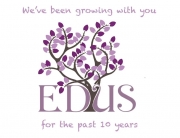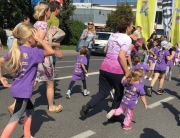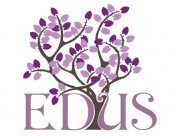Ambassador David Stuart visited a Sarajevo-based NGO “EDUS-Education for All” (13 October 2015), which has been supported by the Australian Government since 2012, through the Direct Aid Program (DAP).
EDUS- EDUCATION FOR ALL (www.edusbih.org)
Since its foundation in 2010, EDUS has been a leader in Bosnia and Herzegovina in the area of advancement of education and support for children, in particular those with disabilities such as autism spectrum. So far, EDUS has helped several hundred of children, educated their parents and trained the professionals that work with the children. It has also developed a system of early detection and intervention for developmental disorders, the first of this kind in Bosnia and Herzegovina.
VISIT TO NEW PREMISES
After the Embassy’s previous visits to EDUS program in the special school Mjedenica, this time EDUS General Secretary, Ms Sanela Lindsay, and Head Program Coordinator, Ms Stanislava Majušević, gave Ambassador Stuart a tour around the additional premises on the top floor of one of the central Sarajevo primary schools. The newly painted and airy classrooms were given temporarily to Mjedenica and EDUS by the Ministry of Education of the Sarajevo Canton, after a request made by the parents of children on a long waiting list for EDUS program. EDUS early intervention centre has moved in here from the previous location, together with additional 26 children from the kindergarten waiting list, which means that total of 52 special needs children of pre-school age have been added to the official support system. Together with 50 children still in program in special school Mjedenica, EDUS has increased the number of children in intensive, every-day program from 80 to 102 children.
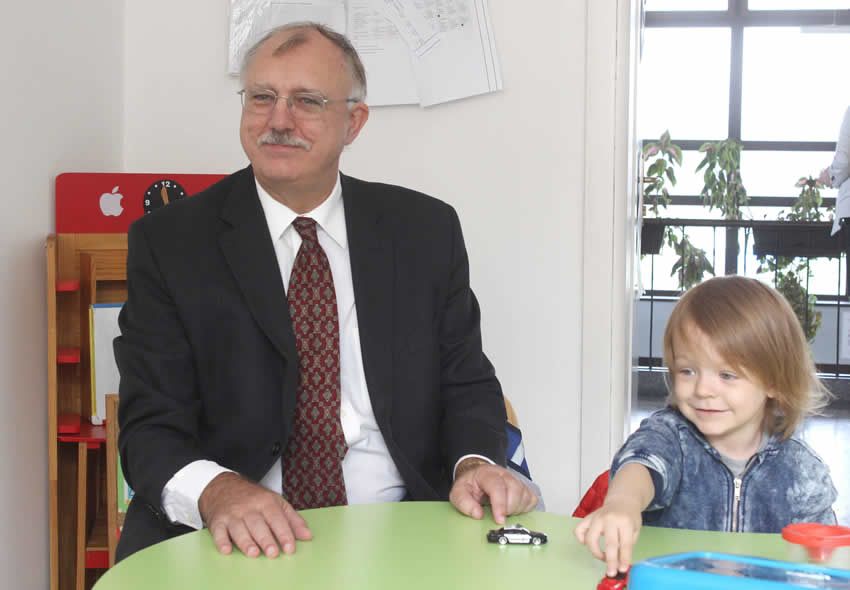
FOČA CENTRE
During the visit, Ms Majušević informed us of activities of an Early Childhood Centre which operates in the kindergarten “Čika Jova Zmaj” in Foča (Eastern Bosnia). The Centre, founded by UNICEF, is one of the beneficiaries of the large national project “Development of early intervention in BiH”, undertaken by UNICEF, with EDUS as the main implementing partner. Under this project, staff of the Centre in Foča have been trained in early detection of a delay in child’s development, using the first standardised scales for assessment of child’s development (produced by EDUS) and learning basic teaching skills for implementation of an individual early intervention plan.
Ms Lindsay described the current status of negotiations between EDUS and the relevant government institutions on taking over the responsibility for the children in their program, primarily by paying the staff who work with them and relieving EDUS from having to provide constant funding for basic children’s needs. Although a considerable improvement has been made in this area since Ambassador’s last visit in November 2014, EDUS expects the process to be long and that funding through government is still some years away.
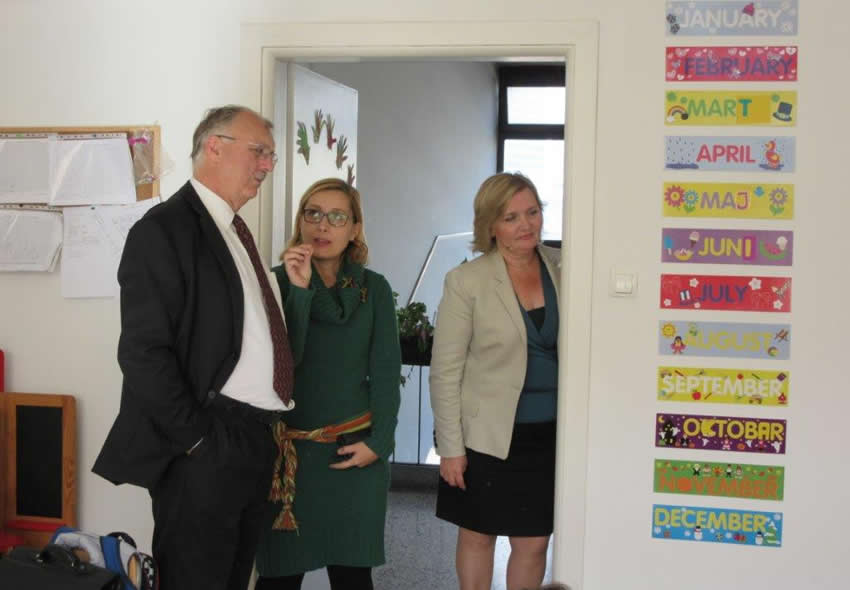
The Embassy expects to continue its support for the EDUS school in Sarajevo in the current financial year. It has also supported the Centre for children and youth with special needs “Los Rosales” in Mostar.


